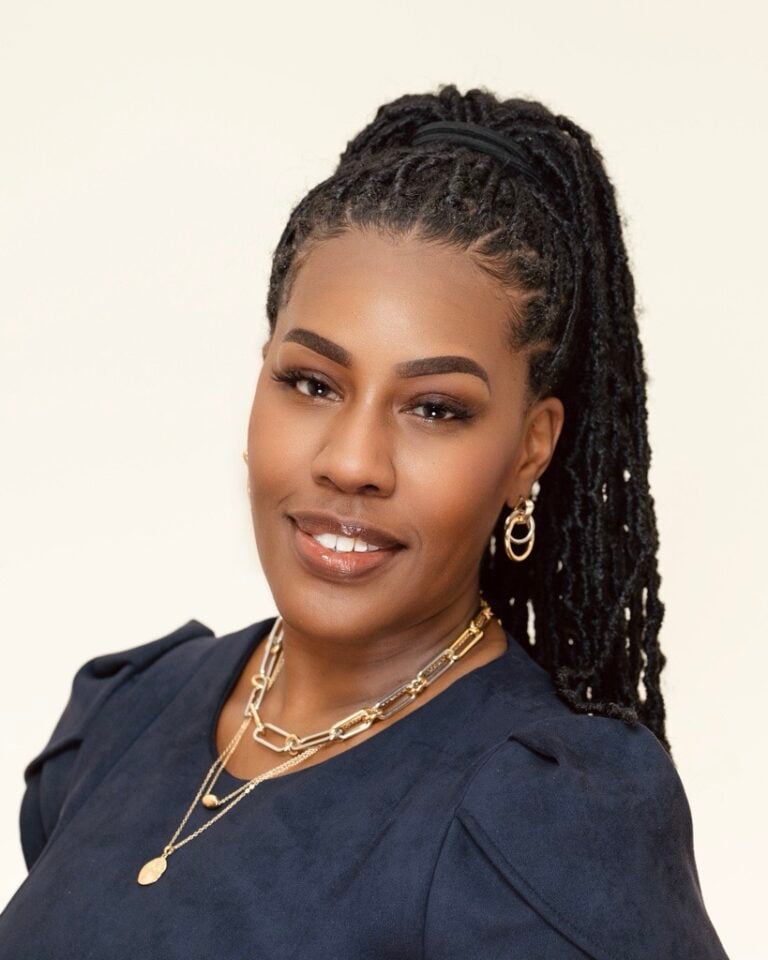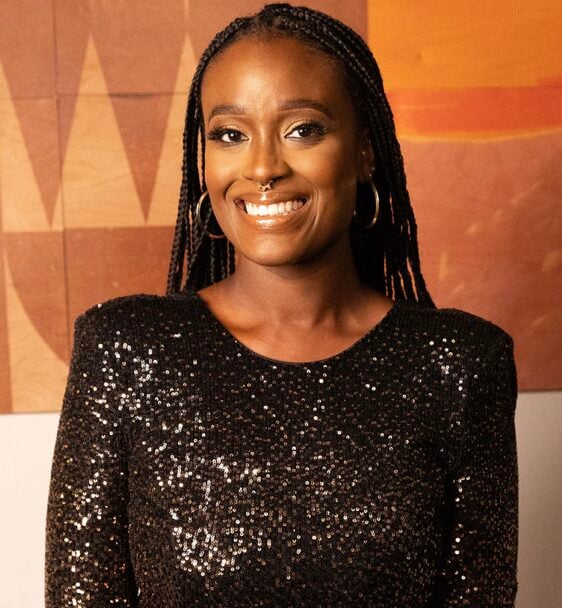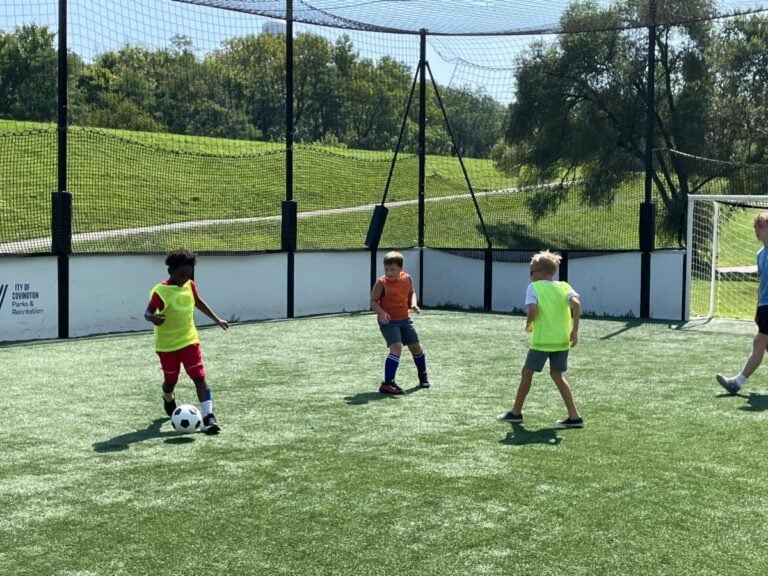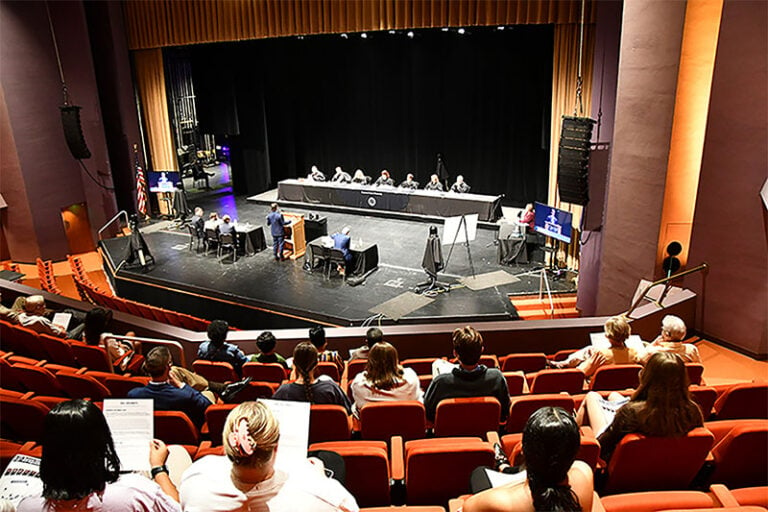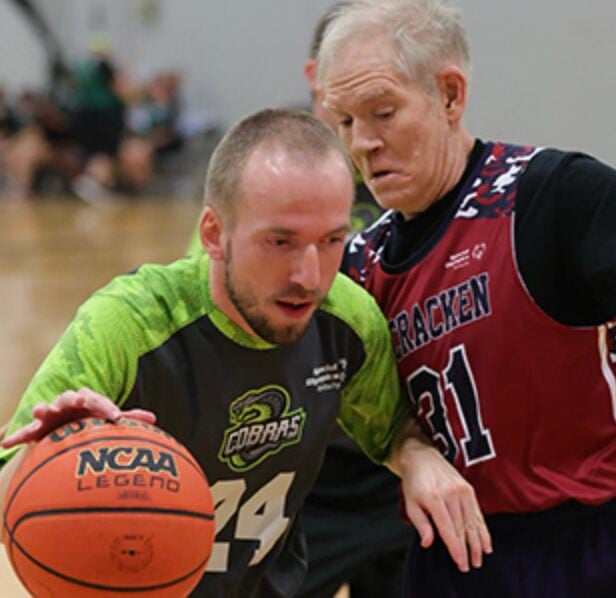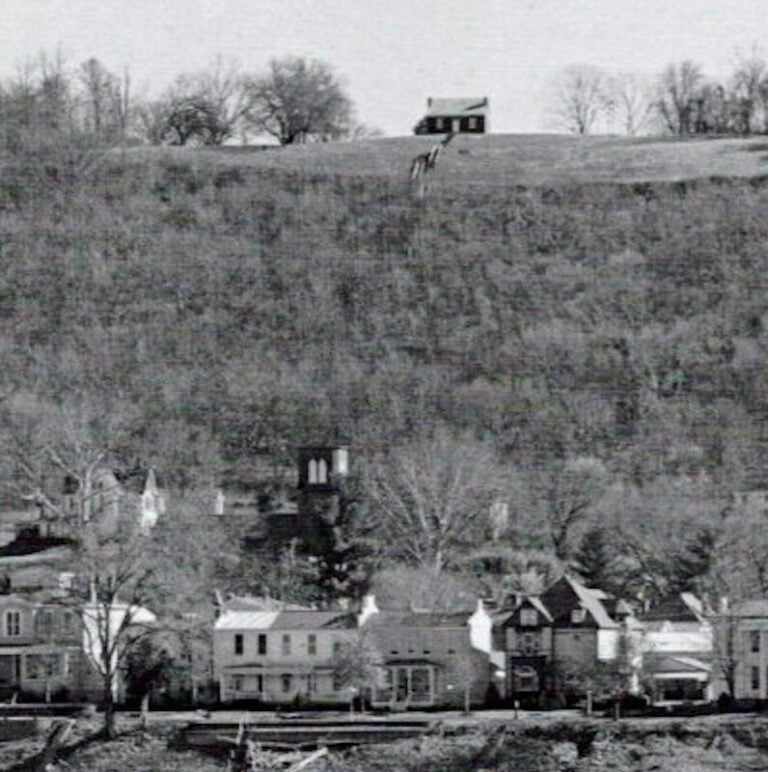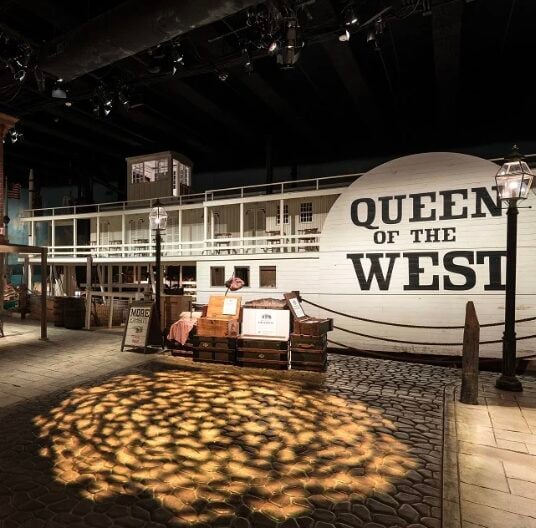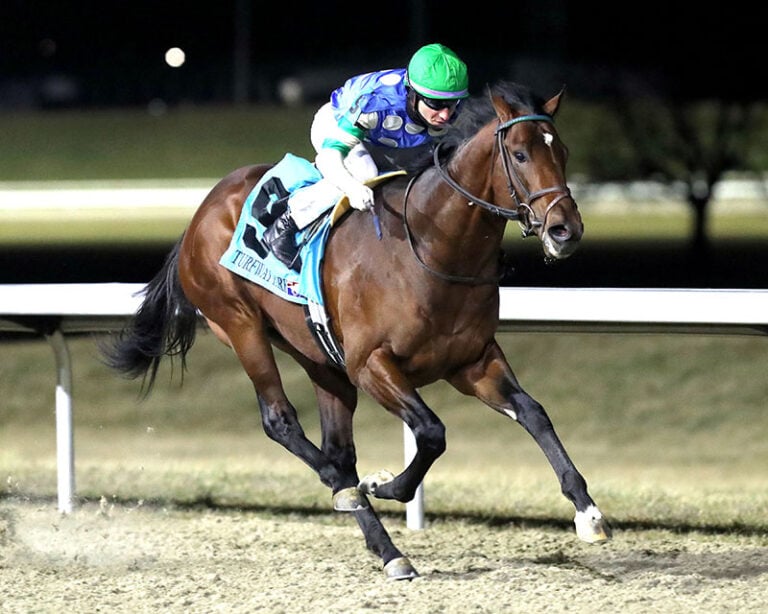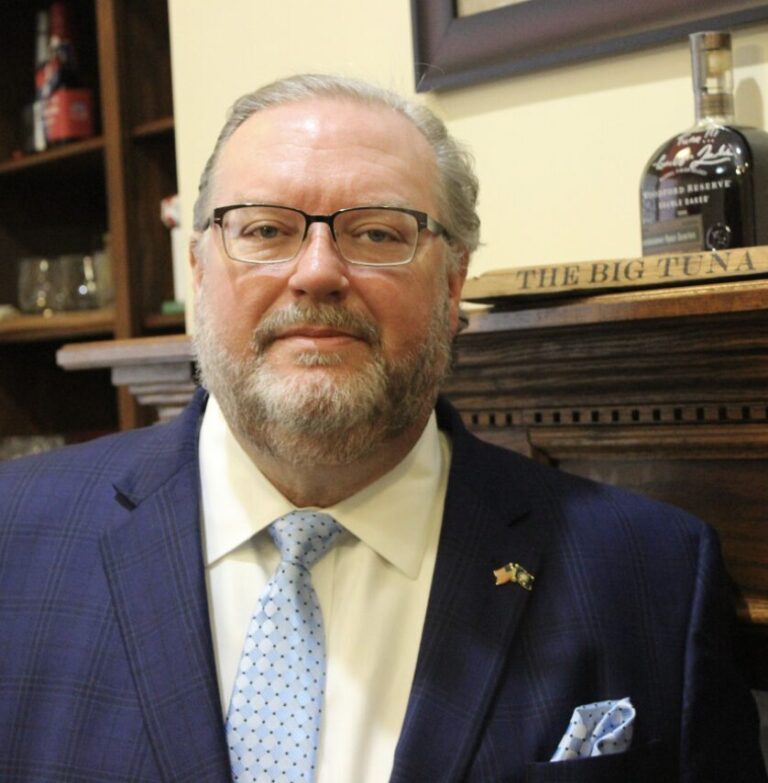By Kristy Robinson Horine
NKyTribune reporter
Caroline Eager balances the bolt of navy and white fabric on her shoulder. With her free hand, she opens the door and slips into the factory just off of Concrete Road in Carlisle.
The building is a one-story rectangular facility of 54,000 square feet. Just across the parking lot is another facility, 175,000 square feet, owned by The Saver Group which stores used grocery store equipment there.
The complex once housed the knitting, dyeing and finishing department of Jockey International. The smaller building Eager has just carried the fabric into had been dedicated to Jockey’s sewing department.

When the company moved its operations overseas, at least 300 people lost their jobs. With fewer than 2,000 residents, 300 jobs and the loss of tax revenue was a big hit to the mostly rural area.
Nicholas County Judge Executive Mike Pryor can remember a time when Jockey supported his entire family. His mom and dad worked there, and beginning in 1976, Pryor worked there as well.
“[The closing] was devastating to the economy of this county. We lost the payroll tax to the city and the county, and all of the dollars they spend in this county,” Pryor recalls. “When I was a kid, I carried out groceries at the local grocery store. On Friday evening, I spent three or four hours each night loading up the carts.”
While the closure might have seemed like a fatal blow in 2004, there is now a spark of help and hope — and it started hundreds of miles away.
From the Lonestar State to the Bluegrass
In 2011, Louisville native Caroline Eager and her husband stepped off of a plane into 105 degrees of big Texas welcome. Their youngest was moving into a college dorm and the Eagers flew down to help.
“We went to four different stores and they were all sold out of dorm bedding,” Eager says. “So I came home and I just had this idea that wouldn’t it have been convenient to have a dorm bundle there waiting for us?”
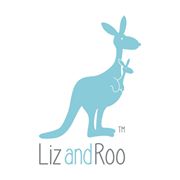
That one experience that left one question, was the genesis of American Made Dorm. But Eager wasn’t only interested in making the dorm experience easier, she was interested in making American life easier. The best way to do that, she thought, was to continue her family’s tradition of keeping it local.
“We are very supportive of made in the USA products, very supportive of small businesses,” she explains.
“I spent about nine months looking for a mill, sourcing fabrics and everything that goes with manufacturing in the US. It was one of the most difficult things I have ever done because so much has been outsourced overseas.”
Eager finally found a plant in North Carolina that was just what she needed. Then, in the Fall of 2012 the phone rang.
“It was Brixy, the trade association for the juvenile products industry,” Eager says. “They wanted to know if we would be interested in developing a line of baby bedding for the Brixy stores. At the time, there were maybe 60 stores.”
Eager teamed up a few months later with business partner and fellow Louisville resident, Carol Ann Anderson. Together, they moved from concept to reality with a new business venture for the baby and toddler industry called Liz and Roo.
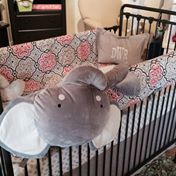
“Both of us were business majors. We both love fabric. We had a lot of fun selecting and designing the baby bedding,” Eager says, then explains how she and Anderson selected Chevron patterns and have since moved into woodland animals, Aztec and nautical themed sets. The fabric they use comes from Premier Prints out of Sherman, Mississippi, a US cloth manufacturer, whose fabric is made in the US and dyed with water-based dyes. “Things run a course and then something else takes their place.”
The first pieces they created included a bumperless bedding set. The American pediatric society had declared baby bumpers – the soft, pillowy lining on the inside of crib rails – a potential suffocation danger. Eager and Anderson nixed the bed bumpers and replaced them with rail covers – soft cushions that fastened over the crib rails, high enough on the baby’s bed so there was no danger of suffocation or entanglement. The rail covers eliminated one problem of toddlers ingesting wood from the rails when they teethed. And, since most baby beds were designed to convert from a railed bed for infants to a headboard style bed for toddlers, the rail covers protected the wood from teeth marks.
The sets are not for everyone, Eager admits. Each piece is hand sewn and sold in the high-end baby bedding market. Crib skirts are $85 to $125. Sheets are $32 to $36. Rail covers are $90.
“Our market is a special market. As a business owner, I don’t want to compete with Target or Kohl’s. They are producing the mass product at a low price. We are producing a special, high quality product at a high price,” Eager explains. “The difference between one of our sheets and the sheets you buy at a big box store is that we use a one-inch elastic band. We have an extra deep pocket that is going to fit the crib mattress. It is safe for baby. It’s not going to come off in the middle of the night. It’s not going to rip at the seams because of the quality construction. We guarantee our sheets for life. I’m really proud to say that in three years, we have never had a sheet returned for quality reasons. Zero. Not one. I’m proud of the work they do.”
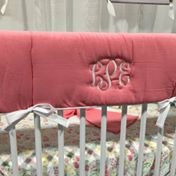
Just like Eager had to make a decision about “which hat to wear” as far as American Made Dorm versus Liz and Roo, she also had to make a decision about where the pieces were going to be manufactured.
“It has always been my dream to make everything in Kentucky,” Eager says.
Her dream is coming true, and it’s a dream that is combining business opportunity with a chance to lend some hope to a Central Kentucky community.
Matching the seams
Ricky Hicks grew up in Carlisle. He cut his softgoods teeth working at Kentucky Textiles just down US68 in Paris in 1989 as Finance Director. The manufacturing portion was sold to SouthEast Kentucky Rehabilitation Industries (S.E.K.R.I.) and Hicks began a long commute from Carlisle to Corbin as contract manager that moved into an accounting position. In 2008, he began working independently for a company called Gotcha Covered, LLC in Paris. After 15 months there, Hicks made arrangements to make the business his own and move it to Carlisle. In 2009, Hicks and his business partner David Eubanks formed 3 Star Industries, Inc., and the 54,000 square feet building that formerly belonged to Jockey once again was filled with the sound of sewing.
“The name 3 Star Industries came from The Father, the Son and the Holy Spirit. Our business is based on faith and that’s the way we do business. That’s the way we want to treat our employees,” Hicks says. “We have a long way to go to that end. There are more things that I want to do that we aren’t doing yet. I would say that the top of the mountain would be that this business is not just a business, but a ministry. That’s the goal.”
When Eager began looking for ways to get closer to her dream of Liz and Roo being made in her home state of Kentucky, she had no idea she was about to become a partner in the ministry of hope.
In 2013, Liz and Roo was voted one of the 12 hot companies through Greater Louisville, Inc. Through that nomination, Eager and Anderson were introduced to Rick Johnson of Innovation Network in Lexington.
“I was telling Rick how I had made it known everywhere in Louisville that we would love to start a sewing group, plant, or mill and everyone said that’s not a good idea, you have to find an existing structure that already has the equipment in place,” Eager says.
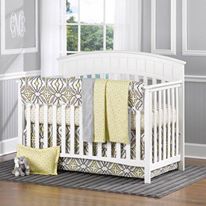
For about a year, she hit a roadblock of not being able to find a suitable place. Eventually, a discussion emerged about how the Jockey plant had closed, and there might be an opportunity with a company that had moved into part of that space.
After a few meetings between Eager and Hicks, the very first Liz and Roo products made in Carlisle were stitched on specialized sewing machines. Two full-time employees sew Liz and Roo’s famous Minky blankets and have begun work on Egyptian cotton crib sheets. The ultimate goal is to move the Liz and Roo sewing operation fully into Kentucky.
But perhaps it is the secondary goal that might make an even bigger impact.
“We want this to be a success, not just for us, but for the whole mission,” Eager says. “I’m always looking for new opportunities to sew even if it doesn’t involve us.”
To that end, Eager has introduced two more businesses to Hicks at 3 Star Industries. Jennifer Chapman is just beginning her initial stages of Baby By Olivia Ann, a high-end baby and toddler apparel business.
Eager brought Chapman to a meeting in Carlisle. Time will tell what opportunity could grow from there. And Eager shared another opportunity from a company in France might be interested in using the sewing services of 3 Star Industries to manufacture Made in the USA products to sell overseas.
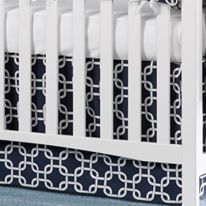
“What Caroline has done is, she has grabbed us by the top of the head and pulled us out of the foxhole and now people see us,” Hicks says.
It’s quite a turnaround from the deportation of jobs that happened less than ten years ago. And it’s something that just might help to turn around economic opportunity in the Carlisle community.
“I think it would be selfish of me to say I am not interested in bringing any more jobs into Nicholas County,” Hicks says. “Being from here, knowing what this place used to have, I couldn’t do that. Let’s do what we can to bring more jobs into Carlisle and Nicholas County.”
Eager and Hicks take a few minutes to discuss the new fabric. A sewing machine might need an attachment in order to fill a new order for Liz and Roo. It’s another great opportunity, not only for Eager’s business, but also for Hicks and his town. Already, they are seeking applications from people who aren’t afraid of the stitching needle.
“This makes me so happy. This is part of why I am doing what I’m doing and why I love what I’m doing,” Eager says. “Because it’s about people and jobs and local and quality. It’s just good.”







